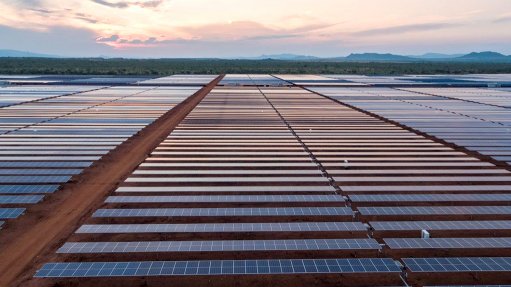Trudeau’s grand bargain unravels after Alberta nixes carbon plan
OTTAWA – Canada’s precarious relationship with its vast oil riches flared up again Thursday after a federal court struck down Prime Minister Justin Trudeau’s approval of a key pipeline, reviving fears about the country’s ability to get its resources to market.
While the government pledged to press ahead with the C$4.5-billion Trans Mountain expansion, the leader of oil-rich Alberta pulled out of Trudeau’s marquee national climate plan in protest after the ruling. Indigenous groups and the City of Vancouver had mounted the challenge, and their success highlights the extraordinary political, legal and social battles that a divided Canada has faced for years in developing the world’s third-largest crude reserves.
Trudeau’s Liberals have staked much of their legacy on forging a grand bargain on resources. The prime minister’s Conservative predecessor, Stephen Harper, was seen as overly deferential to the oil industry and dismissive of opponents. Trudeau, however, has sought to win backing for resource development by being more pro-environment and supportive of indigenous concerns -- seeking what he calls a “social license” -- while also purchasing the troubled project from Kinder Morgan to make sure it gets built.
“Some of our reputation as a place to invest has been quashed” by the court ruling, former Saskatchewan Premier Brad Wall told BNN Bloomberg television. The decision raises questions of “what is enough” and “what is the process” for project approvals.
GROWING FRUSTRATION
Finance Minister Bill Morneau was defiant. Speaking on BNN Bloomberg television, he said the government remains committed to the pipeline. “We are going to be here as long as it takes to make sure the project gets done,” Morneau said. He declined to comment on how much of a delay the court ruling would cause.
Trudeau himself later weighed in, saying in a Twitter post that he’d spoken with Alberta Premier Rachel Notley and “reassured her that the federal government stands by the TMX expansion project and will ensure it moves forward in the right way.”
Yet Notley held a press conference late Thursday to announce that Alberta will no longer go along with the federal climate change plan unless the obstacles to the Trans Mountain project are removed. While the province will maintain its current carbon tax of C$30 a ton, pulling out of the federal plan means it will no longer increase that levy to C$50 a ton by 2022.
She called on Trudeau’s government to immediately file an appeal to the decision and call an emergency session of parliament to deal with the matter, among other measures.
“If the federal government acts boldly and gives this crisis the attention it deserves, construction can restart early in the new year,” she said in Edmonton. “This absolutely needs to happen.”
Frustration with the political and regulatory process around pipeline approvals is beginning to boil over. The price for Western Canada Select crude fell to a $31 a barrel discount to West Texas Intermediate futures this year, the biggest gap since 2013. Three projects that could support prices aren’t scheduled to be fully operational until the next decade, including Trans Mountain, Enbridge’s Line 3 and TransCanada’s Keystone XL.
And for Canadian oil sands producers that are already weary of setbacks for massive projects like Keystone XL, deciding when to bank on a pipeline actually getting built is getting trickier, said Tudor Pickering Holt & Co. analyst Matt Murphy.
“Certainly everyone was pretty hopeful that these projects would come sooner than later, but they’ve all been approaching it with caution,” he said. “I think what they were waiting for was not approval, not shovels in the ground, but getting steel in the ground.”
Read more about the resistance Trudeau faces on climate and energy policy
The Federal Court of Appeal ruled Thursday the regulatory review of the Trans Mountain expansion was “impermissibly flawed” because it excluded project-related tanker traffic. In addition, the court also found the government failed to fulfill its legal duty to consult indigenous people.
A redo of consultations could mean the restart of at least an 18-month process, analysts say. The government has discretion to impose a timeline on the revised approval process.
“What’s likely to come next are significant timing delays and cost overrun, that will no doubt increase uncertainty around the ultimate fate of TMX,” Danilo Juvane, an analyst at BMO Capital Markets, wrote in a research note. He added the decision is a “decided negative” for the oil sands industry.
On top of the legal challenge the federal court ruled on Thursday, British Columbia is seeking a provincial Court of Appeal opinion on whether it can restrict the transportation of crude oil within its borders. Trudeau’s government argues the Pacific coast province is overstepping its powers.
OIL-SANDS EXODUS
As a result, confidence is waning in an energy sector that has faced a slew of headwinds -- including an easing of regulatory restrictions and lower taxes in the US -- in addition to pipeline bottlenecks. The pinch has contributed to an exodus of foreign capital from the sector in recent years as international majors like Royal Dutch Shell and ConocoPhillips sold Canadian assets.
The numbers show an industry that was once a magnet for capital is losing its appeal. Foreign companies withdrew a net C$8.2-billion from Canadian energy and mining assets over the past five quarters after piling in about C$130-billion during the previous decade.
Thursday’s ruling threatens to exacerbate those issues and rekindle fears that regulations have killed the sector’s ability to compete, according to Tim McMillan, president of the Canadian Association of Petroleum Producers. “It reinforces a negative impression that the world has of us, when even the government and the regulator aren’t able to understand our complex regulatory system,” he said.
Comments
Press Office
Announcements
What's On
Subscribe to improve your user experience...
Option 1 (equivalent of R125 a month):
Receive a weekly copy of Creamer Media's Engineering News & Mining Weekly magazine
(print copy for those in South Africa and e-magazine for those outside of South Africa)
Receive daily email newsletters
Access to full search results
Access archive of magazine back copies
Access to Projects in Progress
Access to ONE Research Report of your choice in PDF format
Option 2 (equivalent of R375 a month):
All benefits from Option 1
PLUS
Access to Creamer Media's Research Channel Africa for ALL Research Reports, in PDF format, on various industrial and mining sectors
including Electricity; Water; Energy Transition; Hydrogen; Roads, Rail and Ports; Coal; Gold; Platinum; Battery Metals; etc.
Already a subscriber?
Forgotten your password?
Receive weekly copy of Creamer Media's Engineering News & Mining Weekly magazine (print copy for those in South Africa and e-magazine for those outside of South Africa)
➕
Recieve daily email newsletters
➕
Access to full search results
➕
Access archive of magazine back copies
➕
Access to Projects in Progress
➕
Access to ONE Research Report of your choice in PDF format
RESEARCH CHANNEL AFRICA
R4500 (equivalent of R375 a month)
SUBSCRIBEAll benefits from Option 1
➕
Access to Creamer Media's Research Channel Africa for ALL Research Reports on various industrial and mining sectors, in PDF format, including on:
Electricity
➕
Water
➕
Energy Transition
➕
Hydrogen
➕
Roads, Rail and Ports
➕
Coal
➕
Gold
➕
Platinum
➕
Battery Metals
➕
etc.
Receive all benefits from Option 1 or Option 2 delivered to numerous people at your company
➕
Multiple User names and Passwords for simultaneous log-ins
➕
Intranet integration access to all in your organisation




















